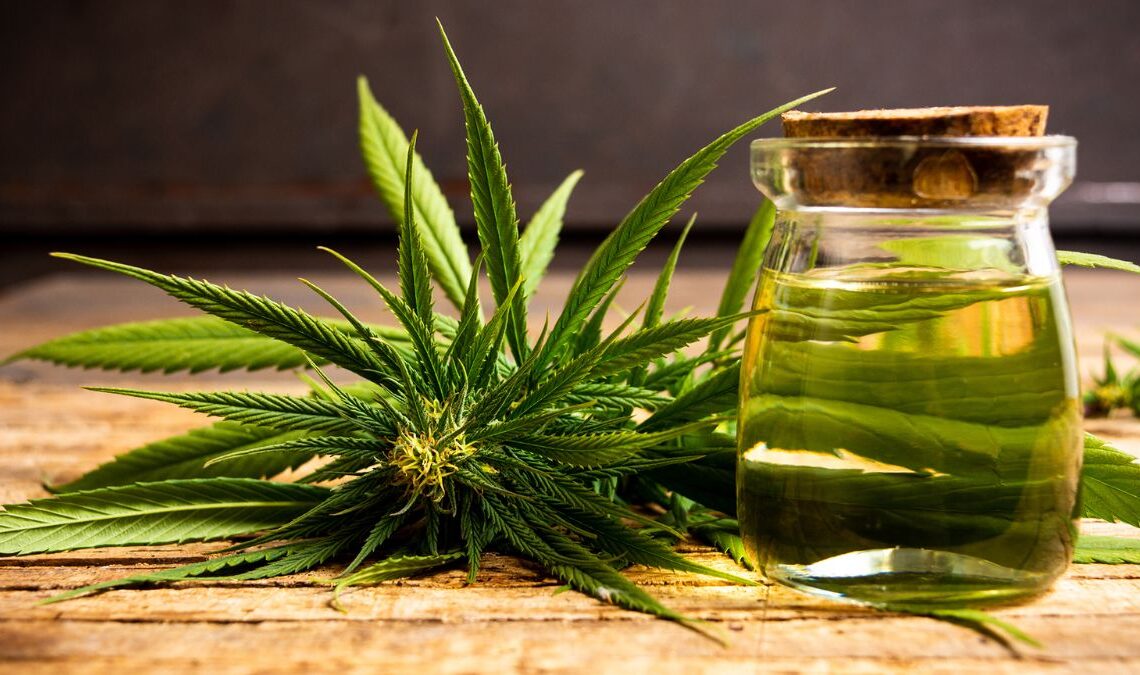Cannabis and hemp contain over 500 chemicals, including around 120 phytocannabinoids contributing to the plant’s therapeutic benefits and sensory experience. THCA and THC are two of the most prominent compounds scientists are exploring for their vast wellness potential. THC is primarily known for its psychoactive properties, while THCA, the non-intoxicating precursor to THC, is gaining popularity for its impressive therapeutic properties.
This blog explores the healing power of THC and THCA, focusing on their effects and medicinal applications.
Jump Link
THCA vs. THC
THC is cannabis’ most well-known and studied compound. But THCA interest is increasing because of the anti-inflammatory, neuroprotective, and anti-nausea properties it displays without getting people high.
THC and THCA are similar chemical compounds occurring naturally in hemp and cannabis plants. The primary difference is that THCA has a carboxylic acid group attached to its molecular structure, while THC does not. This unique shape means that THCA doesn’t activate neural receptors with as much strength as THC and thus does not produce psychoactive effects in raw form. Learn more about the THC and THC-A differences.
However, once heated through smoking or baking, THCA drops the carboxylic acid group and converts into THC, producing the classic psychoactive high cannabis users expect.
How Do THCA and THC Work?
The Endocannabinoid System
THCA and THC interact with receptors in the body’s endocannabinoid system to unleash their effects. The endocannabinoid system (ECS) is a complex cellular network that regulates various physiological processes, including appetite, pain sensation, mood, and immune function. Cannabinoids, such as THC and THCA, interact with the cannabinoid receptors (CB1 and CB2) in the ECS, leading to various effects, including pain relief, reduced inflammation, and altered mood or cognition.
THCA can activate CB1 receptors in the brain like THC, but not nearly with the same strength. THC binds CB1 receptors with a high affinity, producing psychoactive effects like mood and perception changes.
Recent studies suggest THC and THCA also act on pain perception, inflammation, and mood regulation receptors.
Anti-Inflammatory Pathways
THCA and THC can reduce overactive inflammatory cytokine production, which is essential in treating chronic pain and autoimmune disorders. Cytokines are signaling molecules that can protect the body, but excessive cytokine production is damaging, leading to autoimmune diseases and chronic inflammation. These cannabinoids can reduce cytokine production and break the vicious cycle of harmful inflammation.
Other Receptor Action
Cannabinoids like THCA and THC also interact with receptors beyond the ECS, including serotonin, TRPV1, COX-2, and PPARγ. These interactions can influence mood, appetite, and pain perception and reduce inflammation.
- 5-HT serotonin receptor: Related to pain, mood, appetite, and sleep sensations.
- TRPV1 vanilloid receptor: Associated with heat perception, immune response, and pain.
- PPARγ nuclear receptor: Participates in various processes, including inflammation, glucose balance, and fat metabolism.
- COX-2 receptor: Involved in synthesizing hormone-like compounds that contribute to inflammation.
Therapeutic Benefits
Cannabinoids like THCA and THC have unique and overlapping therapeutic benefits stemming from their internal mechanisms of action.
Therapeutic Benefits of THCA
- Anti-inflammatory properties: THCA has potent anti-inflammatory properties that make it beneficial for treating issues such as arthritis and Crohn’s disease. These properties may also make THCA effective at reducing related pain.
- Anti-emetic effects: THCA is effective in combating nausea and vomiting, even more so than THC.
- Antioxidant effects: THCA has antioxidant properties and can protect brain cells from oxidative damage, aiding Parkinson’s, Alzheimer’s patients, and patients with epilepsy.
- Neuroprotection: THCA possesses neuroprotective properties, which may be attributed to its antioxidant and anti-inflammatory effects.
THCA has many therapeutic benefits, and there is still much to discover about this fascinating cannabinoid.
Therapeutic Benefits of THC
- Pain relief: THC is a powerful pain reliever, especially for neuropathic and chronic pain in conditions like fibromyalgia, multiple sclerosis, and rheumatoid arthritis.
- Anti-emetic and appetite stimulation: THC can reduce nausea and vomiting and stimulate appetite in chemotherapy and HIV/AIDS patients.
- Anticonvulsant: THC may have anticonvulsant and muscle relaxant properties and may benefit patients with epilepsy, spasticity, and movement disorders.
- Mental health: THC can improve mood and ease depression and anxiety.
These are just some of the therapeutic benefits associated with THC. While THC has psychoactive effects, it is also an incredibly versatile cannabinoid with plenty of medicinal advantages.
Risks
While THCA and THC show promising therapeutic effects, it’s essential to recognize the potential risks.
THC
A few potential risks associated with THC include:
- Psychological effects: THC can trigger anxiety and paranoia, especially in high doses. It’s also possible for THC to worsen mood disorders like depression or bipolar disorder with frequent, chronic use.
- Impaired cognitive function: THC can impair cognitive function, including short-term memory and attention span. It may also affect learning and information processing speed.
- Withdrawal symptoms: Frequent, high doses of THC may lead to misuse, with withdrawal symptoms such as irritability, lack of appetite, and sleep problems. Fortunately, taking occasional tolerance breaks minimizes these risks significantly.
THCA
Some potential risks associated with THCA include:
- Psychoactive potential: THCA transforms into THC through heat exposure, which leads to psychoactive effects. This may be a benefit for some people who want to get high. However, this chemical conversion risk is not ideal for people who prefer THCA’s non-psychoactive therapeutic benefits.
- Pregnancy: There are no clinical trials involving THCA’s effects on pregnancy or breastfeeding.
The Bottom Line
THC and THCA, two prominent cannabinoids in hemp and cannabis, have unique and overlapping therapeutic benefits. THC is mainly known for its psychoactive effects, while THCA is non-intoxicating and has anti-inflammatory, neuroprotective, and anti-nausea properties. Both interact with the endocannabinoid system and other receptors to relieve pain, reduce inflammation, and alter mood or cognition. While promising, it’s essential to recognize the potential risks associated with THC, including psychological effects and impaired cognitive function. However, occasional tolerance breaks can minimize these risks. Overall, THC and THCA have immense healing potential with many medicinal advantages.





